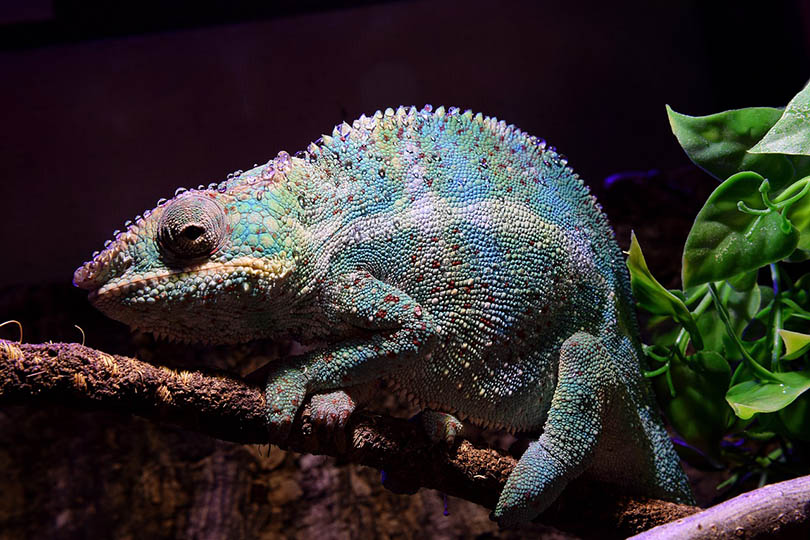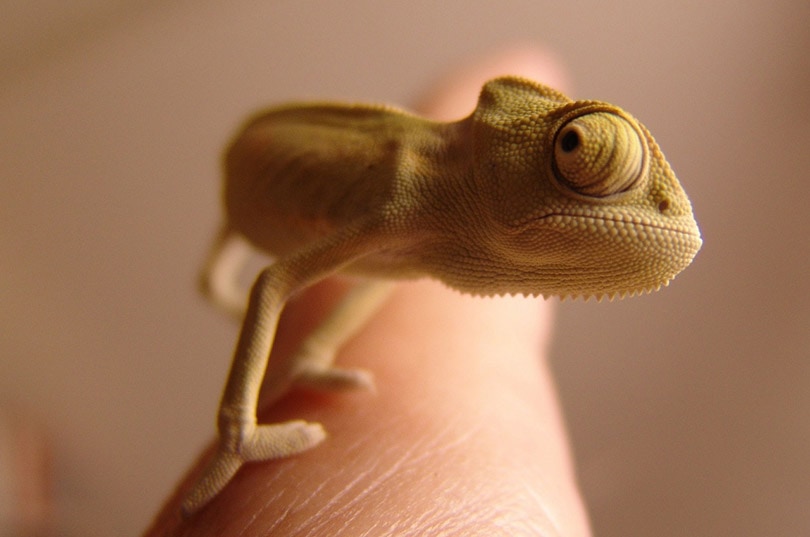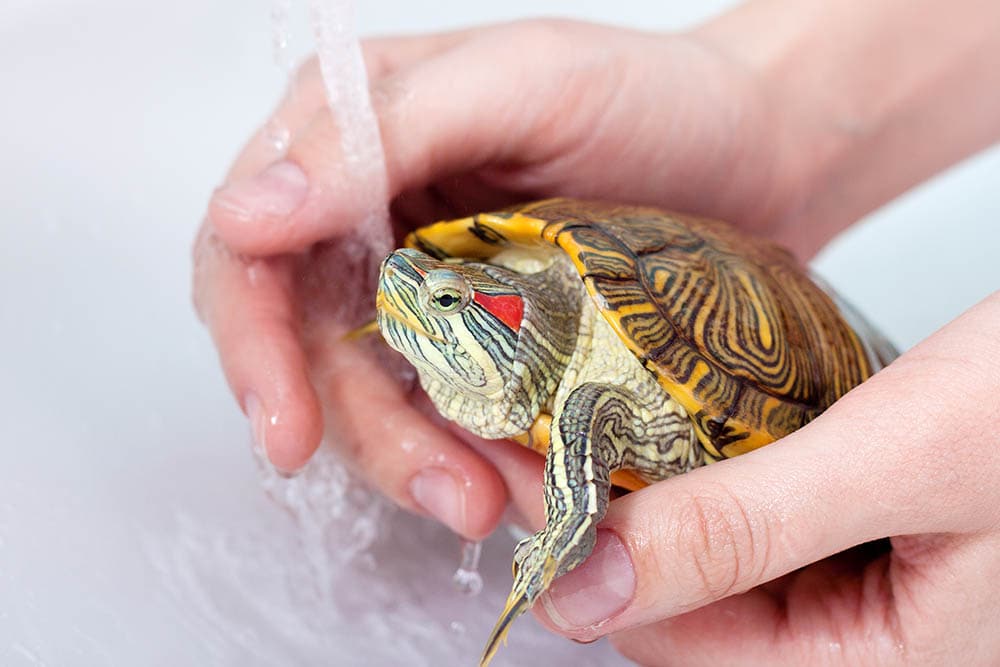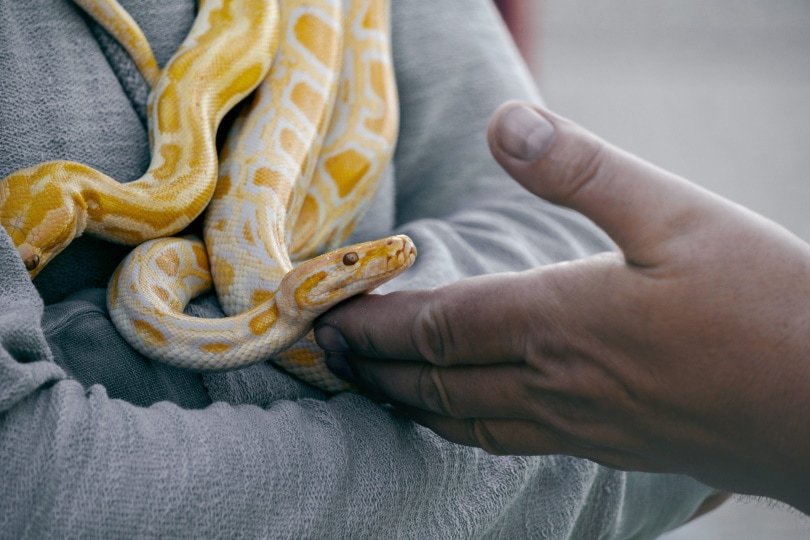
With pet insurance growing more and more popular as time goes on, it leaves you to wonder if the not-so-traditional pets are included in coverage on these insurance plans. For owners of the slithering sort, there are not nearly as many insurance options available, but you can get pet insurance for snakes. We’ll go over the ins and outs of what we found regarding insurance for snakes and other exotic pets.

Exotic Pet Insurance
There is currently only one company to offer an insurance plan for snakes and that would be the Avian & Exotic Pet Plan from Nationwide. This plan is obviously not limited to only snakes, they cover a wide variety of birds and other pets that are labeled as exotic.
Knowing what’s covered is important, we recommend checking a few different companies to compare exotic pet policies and find the one that best fits your needs.
Top Rated Pet Insurance Companies:
They do cover a wide variety of pet snakes but it’s best to reach out to Nationwide and discuss your species and your needs for a personalized quote regarding policy costs and any limitations regarding your state. The Avian & Exotic Pet Plan is available in all 50 states and the District of Columbia. You must be a resident of the United States to purchase the policy.
As for extra-large species of snake (such as the Burmese and reticulated pythons) and venomous species, it is unclear whether they fall under the coverage. These types of animals should only be kept by experienced reptile keepers and within zoos and sanctuaries. There are often laws regarding the ownership of these types of snakes that vary by state, county, and even municipality.

What’s Covered?
You’ll want to discuss the Avian & Exotic Pet Plan directly with a Nationwide representative to get the full scope of information on what is and isn’t covered within the policy. They do state they reimburse up to 90 percent of eligible veterinary expenses.
This includes the expenses of the most common medical conditions for the species. Here’s a quick overview of the information we gathered for what is covered in the plan. Keep in mind that each of the following must meet the eligibility criteria:

What’s Not Covered?
Here’s a list of what we can confirm is not covered within the Avian & Exotic Pet Plan. Again, it’s best to discuss the policy directly with the provider for more precise and accurate information regarding your circumstances and a specific animal.
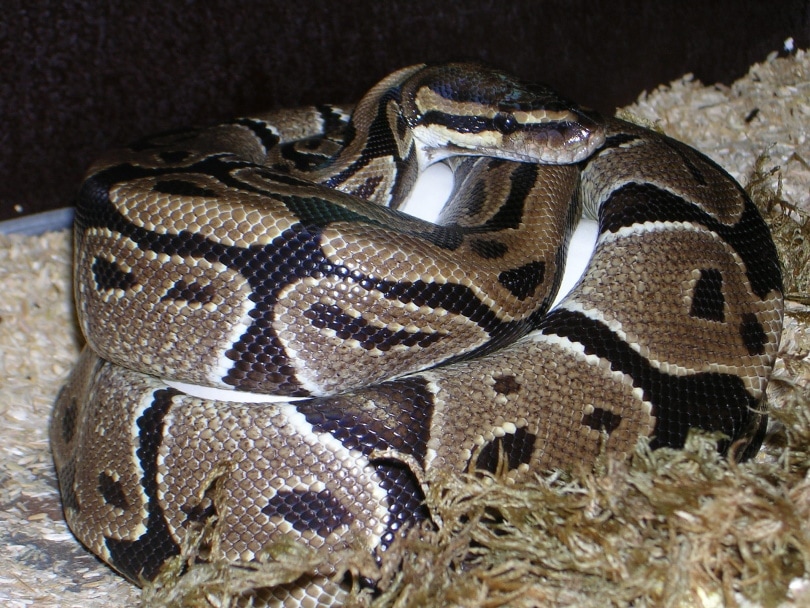
Other Pets Eligible for the Avian & Exotic Pet Plan
Since snakes are not the only animals covered on the Avian & Exotic Pet Plan, here’s a list of the other animals that are also included in this type of pet insurance coverage:

Is Pet Insurance Necessary for Snakes?
Snakes tend to be much easier to care for than your average pet if you are knowledgeable about the specific species and their unique care requirements. They do not require semiannual or annual wellness checkups or routine vaccinations like other pets, but they are certainly prone to some health issues that can get costly.
Whether or not insurance coverage for your snake is necessary will be up to your personal preference. The policies typically reimburse for eligible expenses after you pay upfront. Here’s a quick overview of the common health ailments commonly observed in pet snakes:
Common Health Conditions Observed in Snakes
Snakes are generally healthy pets that can go quite a long time without the need for a veterinary visit, under the right conditions, of course. As with any living being though, there are some common health concerns to be aware of as a snake owner:

Importance of Proper Husbandry
As you can see, the most common health condition seen in pet snakes is due to poor husbandry. Therefore, proper care and husbandry are very important. Different species of snakes have different requirements, it’s not a one-size-fits-all kind of care.
Make sure that before you bring home a snake or any other exotic animal you research the species before you commit to buying. Make sure to purchase captive-bred specimens from a reputable breeder that is knowledgeable about the animals they are selling. You can speak to the breeder and your veterinarian about proper care requirements for your snake to ensure they thrive and remain as healthy as possible.

Summary
While current pet insurance for snakes is limited to one option, there’s a chance the market will grow, and more companies will begin offering policies that cover snakes and exotics in time. Snakes may not have the same routine veterinary requirements as a lot of other pets, but accidents do happen, and health ailments can most certainly pop up. If you are interested in pet insurance for your snake, you can reach out to Nationwide and discuss it further.
Featured Image Credit: Piqsels

